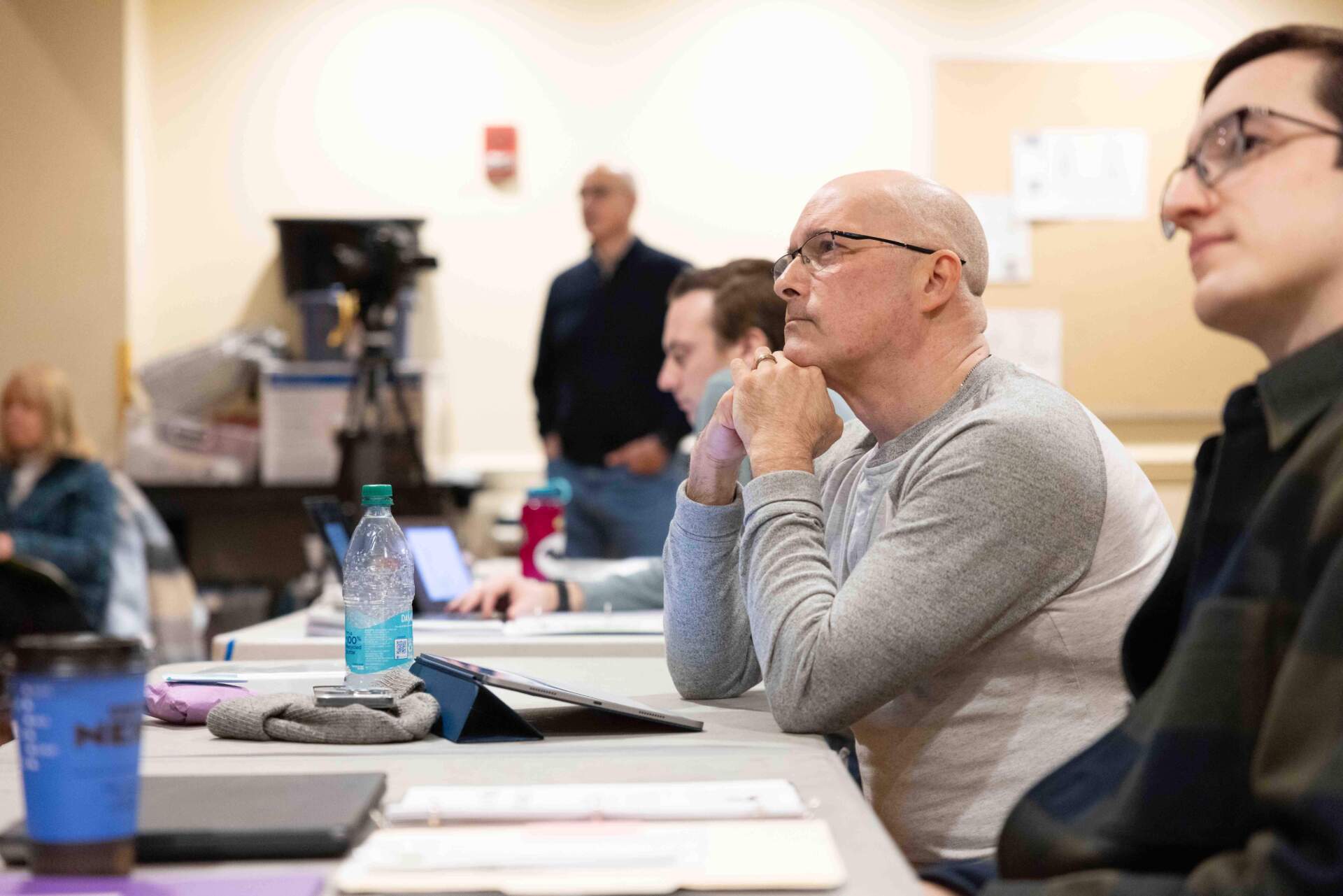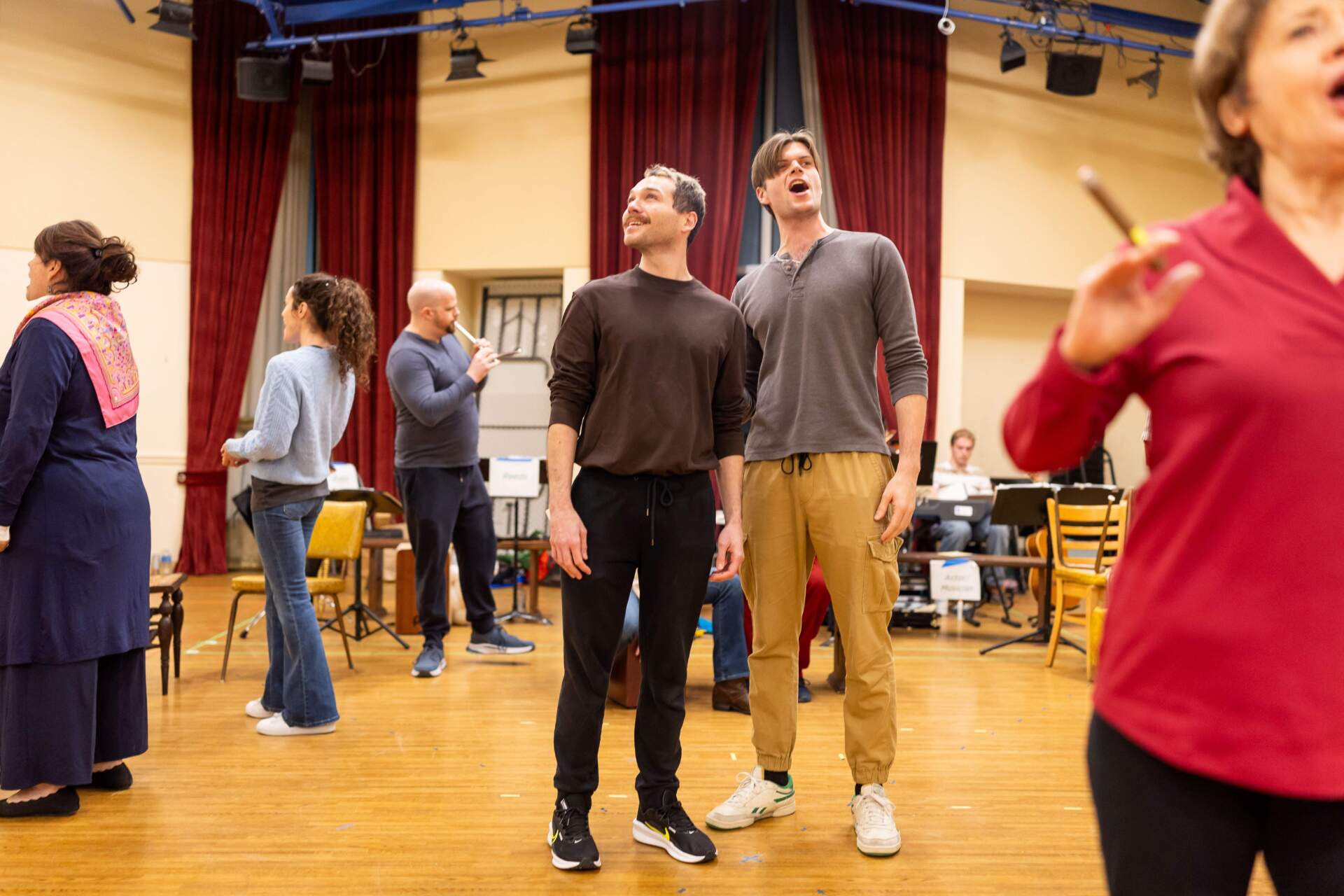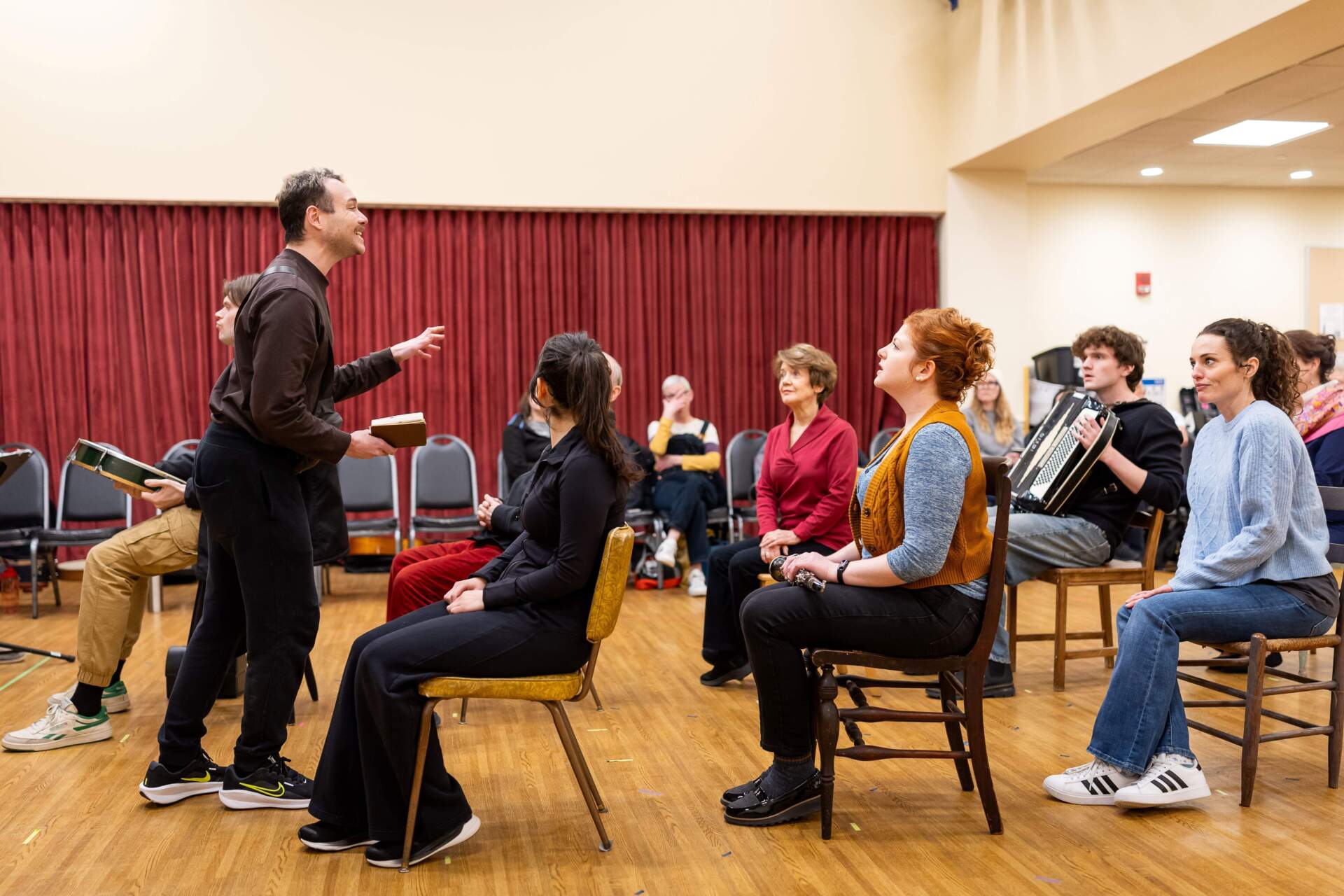Advertisement
'A Man of No Importance' brings a message of hope at SpeakEasy Stage

When Paul Daigneault was deciding on his last production as artistic director of SpeakEasy Stage Company, he knew he had to listen to his gut. Daigneault, who founded the organization in 1992, selected the musical “A Man of No Importance,” which centers the queer community, with its narrative about a man struggling to confront his own sexuality amidst societal pressures.
“It’s a play about honoring your true, authentic self and the fear that if you are your true authentic self, will you still belong?” said Daigneault. “By acknowledging who you truly are, will the world reject you?”
Staging the show has another layer of importance for the director. In 2003, he helmed what may have been one of the first productions of “A Man of No Importance” outside of New York City, held in conjunction with Súgán Theatre Company. Cast members Kerry A. Dowling and Billy Meleady, as well as lighting designer Karen Perlow, return for this reimagined one-act rendition, running Feb. 21-March 22.

But today, in 2025, Daigneault feels that this musical carries greater, more powerful resonance in our current cultural and political climate, with its themes of otherness, shaming marginalized figures, and using scripture as a way of asserting one’s own morality. “The arts are currently under attack in this country, so this message is even more important now,” he wrote in an email.
The production, which features a book by Terrence McNally and music and lyrics by Stephen Flaherty and Lynn Ahrens, tells the story of a sensitive bus conductor named Alfie Byrne (Eddie Shields), who inhabits a hidden existence in 1964 Ireland, a time when homosexuality was criminalized. Dreaming of creating art, he assembles an amateur theater troupe, the St. Imelda Players, to produce Oscar Wilde’s “Salome,” but church officials try to stop the show.
At the same time, Alfie finds himself experiencing “the love that dare not speak its name,” drawn to bus driver Robbie Fay (played by Keith Robinson), a person who claims to not believe in poetry, but sees beauty in the ordinary moments around him. Building out a dramatic community that offers refuge from the harder reality outside, Alfie discovers friendship and what it means to be an artist, while learning to come to terms with who he really is. With poignant moments, soaring melodies and quiet lyricism, the show follows Alfie’s profound and touching self-realization.
Advertisement

Alfie is entranced by the story of Salome — a princess whose suppressed sexuality leads to her own destruction — and the enigmatic figure of Oscar Wilde, who appears as a guide to him, inspiring him to break through his silence. Battling his own fears and the strictures of the church, we see Alfie find spiritual meaning outside of established religion.
Daigneault noted that the resilience the St. Imelda Players find in the face of the church’s restrictions spoke to him. “The message I hope people will take is that you can have oppression and censorship, but that’s not going to stop the artists from being themselves,” he said.
When first writing the music to “A Man of No Importance,” Flaherty said it was challenging to find Alfie’s voice because he is a person who “keeps his cards very close to himself.” It wasn’t until Oscar Wilde was introduced as a character in the play that Alfie began to come alive. The composer worked to convey personalities and emotional arcs in the songs that he created: Alfie’s melodies tend to be more soft and lilting, while Robbie adopts a more rock and roll feel. In the powerful number “Streets of Dublin,” Robbie illustrates the grace that he perceives in the common world around him, convincing Alfie to come with him to a pub. Flaherty realized that it represented a pivotal instance for both characters.
“I think Alfie can’t even entertain the idea of loving somebody else. I think he’s so sealed off,” Flaherty said. “But I think that’s probably the moment where it cracks open, because he sees this extreme charisma and love of life. It’s about the idea, ‘What do you consider victory in your life?’”

Flaherty pointed to a key line in the song: “There are glasses to raise in the praise of surviving the day.” “When we came to that line, we thought, that’s really what the show is about,” he said. “It’s not about big victories, it’s about small victories, getting through your life.”
Daigneault said that he hopes this production will uplift audiences and perhaps bring them a belief that we can each embrace our genuine identities. Toward the end of the play, Alfie sings a song called “Welcome to the World,” where he realizes that he can no longer hide.
“Whether it ends up being a good thing or a bad thing, he’s actually living his truth,” said Daigneault. “That’s what I hope audiences take away from it. I hope audiences feel that their hearts are a little bigger.”
